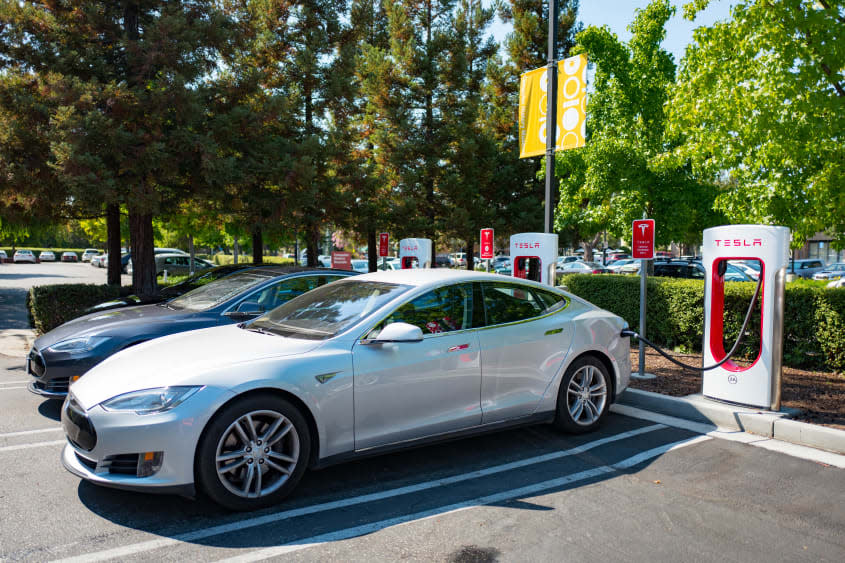Autos: A jump-start for the electric future

The smartest insight and analysis, from all perspectives, rounded up from around the web:
The end of the gas-guzzler is nearing, and California is showing the way, said Shannon Osaka in The Washington Post. Last week, California announced that it would bar the sale of new gas-powered cars, with limited exceptions for plug-in hybrids, starting in 2035. That may seem like a long way off, but the legislation requires a steady buildup of EVs and plug-in hybrids as a proportion of new-car sales, from 35 percent in 2026 to 68 percent by 2030 to 100 percent by 2035 (plug-in hybrids can make up only 20 percent of that). "California's car market is only slightly smaller than those of France, Italy, and Britain," and the Golden State also sets the agenda for other left-leaning states. California's move immediately triggered a 2021 law in Virginia that aligns its emissions standards to whatever California is doing. Washington, Massachusetts, and Oregon have also signaled they intend to follow suit with their own firm deadlines. With all this momentum, "the transition from gas-powered, internal combustion-engine vehicles to electric vehicles no longer feels niche, or speculative. It feels inevitable."
"This transition is not being forced on an unwilling industry," said the Los Angeles Times in an editorial. Automakers envy Tesla's surging popularity and are trying to replicate its success. Even Toyota, "which only a few years ago joined with the Trump administration in challenging California's authority to regulate vehicle pollution, has recently changed its stance and says it is now on board with the state's efforts." California's deadline is less threatening than it would have been a decade ago, said Nitish Pahwa in Slate. Today, it reads as "a reasonable, workable, legally binding guidepost." Most of the world's biggest automakers, from Ford to General Motors to Volvo, "were already working to phase out their gas-fueled stock" over the next decade. Consumer demand for EVs has never been higher. And the move comes on the heels of the passage of the Inflation Reduction Act, which included billions in tax incentives for EV purchases. "The future will be electric because the present already is."
Let's not get ahead of ourselves, said The Economist. Sales of EVs currently make up about 16 percent of the total in California. That's a big figure, but getting to California's mandated numbers "will mean making a lot more batteries." That's a challenge given today's supply-chain bottlenecks and geopolitics. China "dominates the market for the necessary raw materials," like lithium, "and the processing capacity" for batteries. California will also need to quickly build up its charging infrastructure. The new regulations call for EVs sold in the state to be capable of traveling at least 150 miles on a single charge, said Dan Walters in CalMatters. That "wouldn't even cover a one-way trip" between San Francisco and Lake Tahoe. "Is California willing to build the hundreds of thousands of recharging stations" that will be required? The average price tag on a new EV today is $66,000. Unless that comes down significantly, "how would the decree affect low-income Californians?" Declaring 2035 as the deadline to end of sales of new gas-powered cars was "the easy part." Actually making the transition will be harder.
This article was first published in the latest issue of The Week magazine. If you want to read more like it, you can try six risk-free issues of the magazine here.
You may also like
5 brutally funny cartoons about Biden's anti-GOP rhetoric
A post-retirement tax nightmare
5 scathing cartoons about Lindsey Graham's 'rioting in the streets' comments

